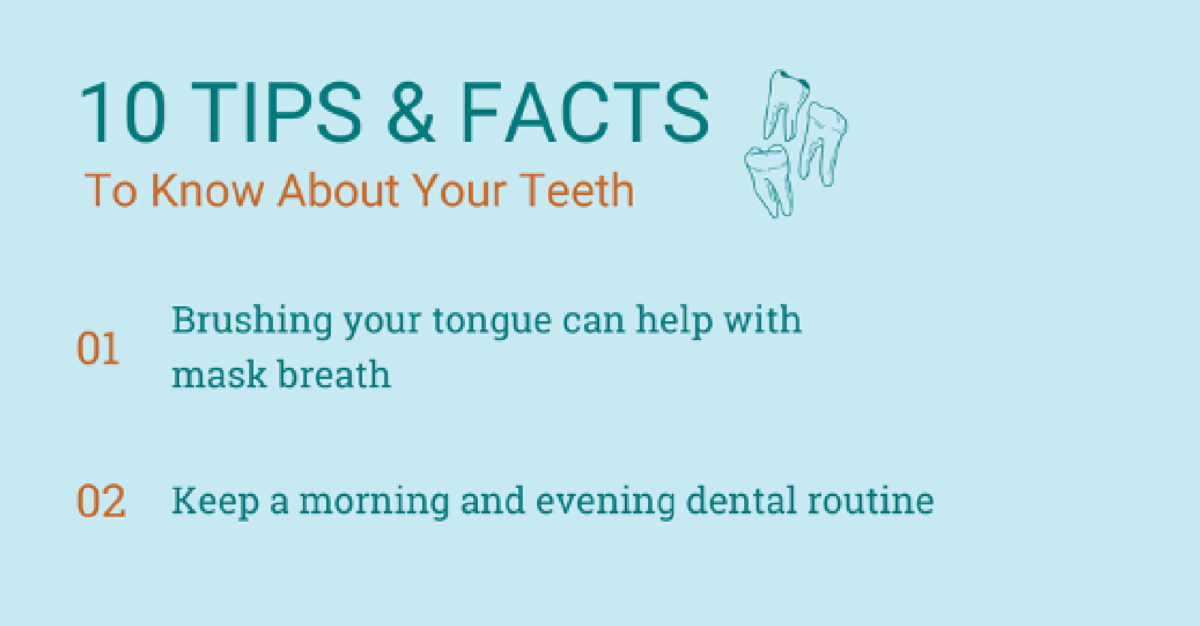1. Brushing Your Tongue Can Help Bad Breath
The tongue may actually hold more bacteria than your teeth. With its many crevices, your tongue does a great job of trapping bacteria and can cause your entire mouth to smell bad. Similarly, the roof of your mouth can store bacteria, so make sure you brush them both. During the COVID-19 pandemic, “mask breath” can be a serious inconvenience. So, make sure you’re taking the necessary steps to maintain proper oral hygiene!
For more tips and tricks, download this helpful guide.
2. Keep a Routine
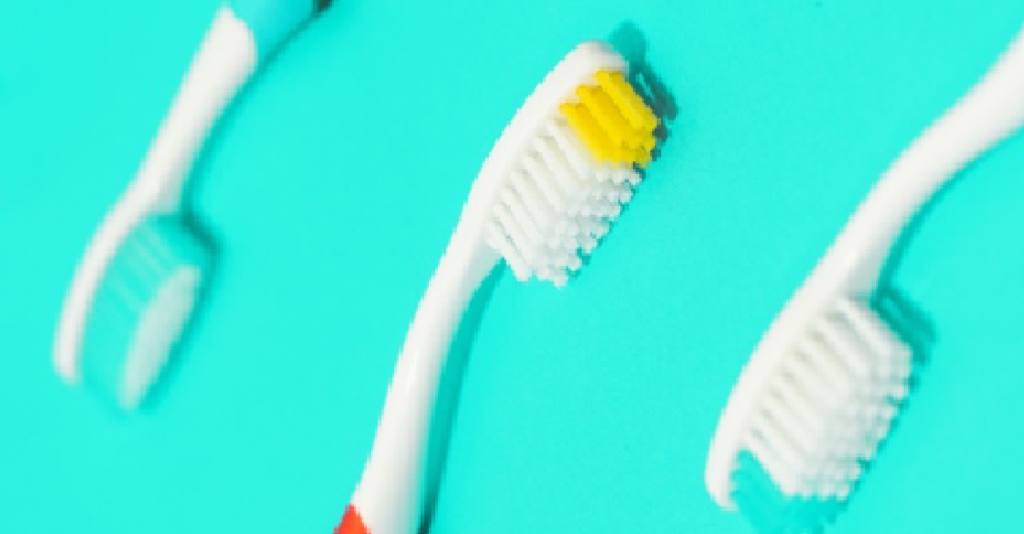
No matter what your habits may be, maintaining a dental routine is what really matters. While elaborate toothbrushes and other oral health tools each have their own function and benefits, they will not work without consistency. Similarly, a standard, run-of-the-mill toothbrush, if used for two minutes twice a day, can keep your mouth clean and healthy.
No matter the toothbrush or toothpaste you use, keeping up with a morning and evening routine for oral hygiene, along with healthy eating habits, are the most important steps to keeping your teeth happy and healthy.
3. Start Young
If you have children, the best time to visit a dentist is no later than their first birthday, or after their first tooth erupts. Taking preventive action early can help ensure that your children’s teeth stay healthy and strong as they grow, without major dental complications. Be sure to schedule regular dental examinations once every six months.
For more information on what to expect during your child’s dental appointments, visit this helpful page from the Mayo Clinic.
4. Oral Health Isn’t Just a Mouth Problem
Poor oral health disproportionately affects low-income families and people of color. Unfortunately, studies have shown that it is harder for people with underdeveloped hygiene or missing teeth to secure employment. Increasing education, access, and equity in oral health care can help mend some of these societal concerns.
5. Dental Anxiety
Fear and anxiety surrounding dental treatment is very common. As medical professionals begin to bridge the gap between health care services, therapists are able to work with patients to screen for common conditions like this. They can then implement breathing and relaxation techniques to provide a more comfortable visit. If you are not asked, but suffer from dental anxiety, tell your dentist and dental hygienist.
Anxious about the dentist? Try taking a stress ball with you to your next appointment. During your visit, implement mindfulness strategies, such as slowing and counting your breaths.
For more ways you can learn to cope with dental anxiety, visit https://www.mouthhealthy.org/en/az-topics/a/anxiety
6. Be Wary of Acidic and Sugary Drinks
Fun fact: enamel is the hardest substance in the human body, but it isn’t invulnerable!
Too many acidic or sugary drinks may be harming your teeth. Some beverages have higher levels of acidity than others. These drinks can eat away at the enamel that covers the outer layer of your teeth, leaving them more vulnerable to plaque and bacteria.
Too much sugar can also lead to tooth decay, and soda is one of the easiest ways to consume large amounts. Try to limit your weekly number of sugary and acidic drinks to protect your enamel.
For more on how you can prevent tooth erosion, visit https://www.deltadentalins.com/oral_health/acid_wear.html
7. Vaping and Cigarettes Can Damage Your Teeth
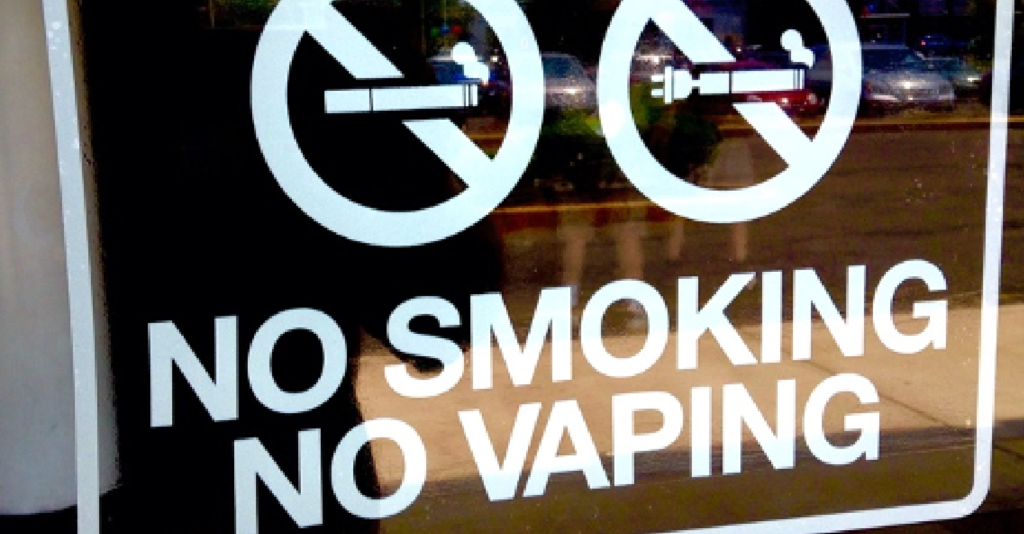
Did you know that smokers are twice as likely to develop gum disease? Not only does smoking affect your breath, it can stain your teeth and lead to more serious complications, such as oral cancer. Similarly, the nicotine in both cigarettes and e-cigarettes can interfere with blood circulation and damage gum tissue.
Learn more about smoking and periodontal disease at https://www.cdc.gov/tobacco/campaign/tips/diseases/periodontal-gum-disease.html
8. Your Saliva is Important
Your saliva is not just for drooling. It helps naturally wash away debris from the food you’ve eaten and can defend against the acid in some of those sugary drinks. You can also thank your saliva for killing some of those germs that cause bad breath.
Without saliva, your mouth would be more vulnerable to tooth decay and gum disease. Be sure to drink water and stay hydrated to maintain sufficient saliva production.
Got dry mouth? Visit https://www.deltadental.com/us/en/protect-my-smile/basics/oral-anatomy/the-importance-of-saliva.html for more information on xerostomia (dry mouth).
9. You Can Brush Too Hard
Most toothpastes contain abrasive ingredients such as calcium carbonate that help rid your teeth of plaque and bacteria. Similarly, the bristles on your toothbrush do a good job of scraping away these harmful elements. However, brushing too hard can actually damage the enamel on your teeth, leaving them more vulnerable to tooth decay.
When brushing, use about as much pressure as you would when writing with a pencil on paper. Make sure to use a soft-bristled brush instead of a medium- or hard- bristled brush. Brush in small circles for two minutes and don’t forget to floss.
10. Don’t Ignore Your Dentist
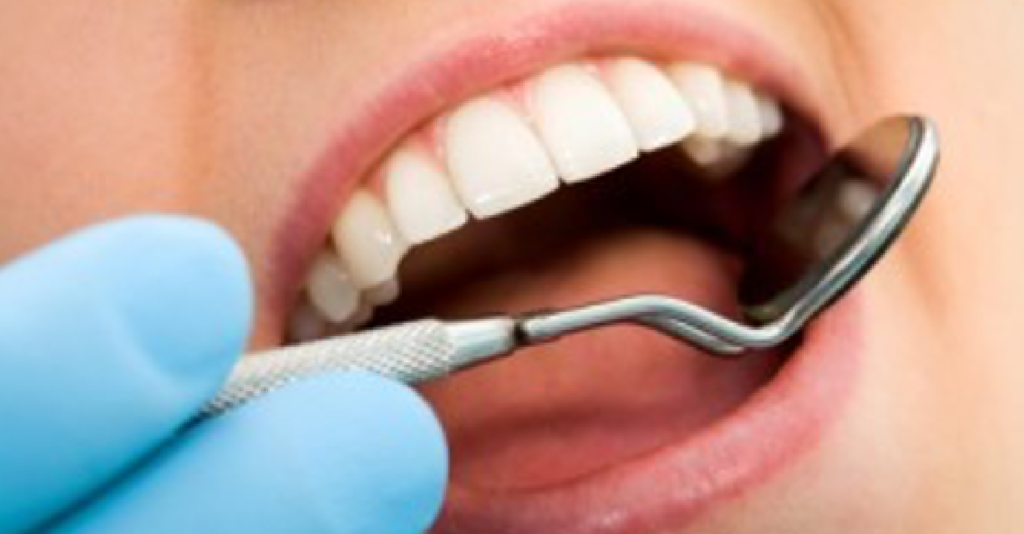
Regular dental appointments are not just for children. The recommended timeline for teeth cleanings is twice a year or once every six months. Even with good habits, consistent dental cleanings and checkups are essential. Oral health professionals will screen for oral cancers and other diseases in your mouth that are not easily caught. So, be proactive and keep your teeth and mouth healthy and safe.
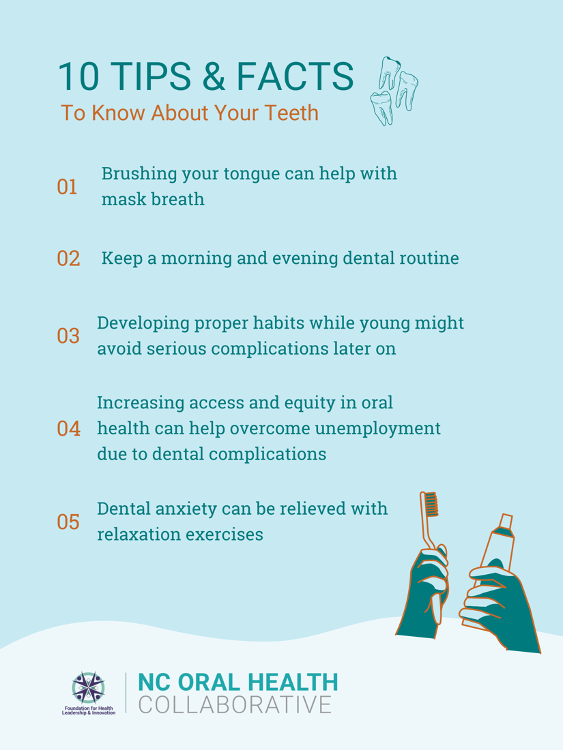
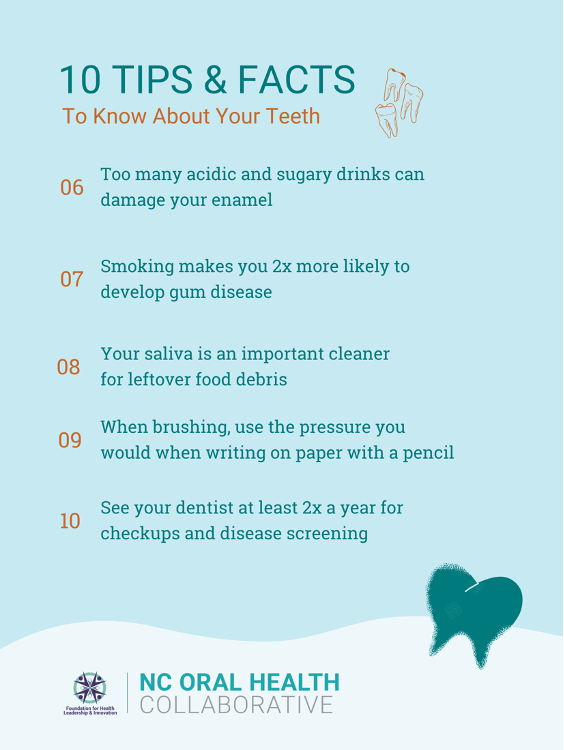
NCOHC is a program of the Foundation for Health Leadership & Innovation. For more information and to stay up to date, subscribe to the NCOHC newsletter. If you are interested in becoming an NCOHC member, you can also fill out our membership form. It’s free!

